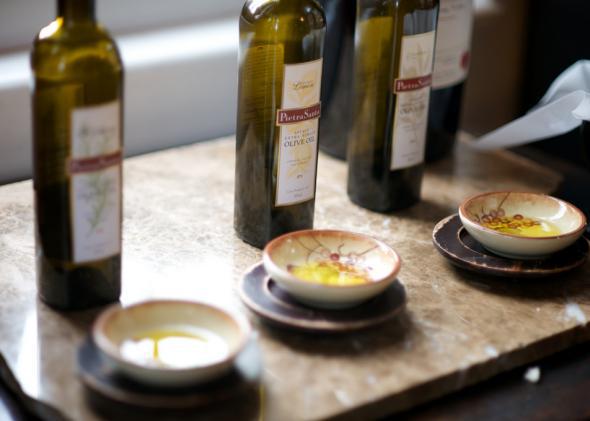First California came for Europe’s dominance in wine. Now the state has its eye on olive oil. According to a recent piece in the Los Angeles Times, California growers and producers are in hot pursuit of the $5.4 billion olive oil market and are seeking new regulations that would help them compete with European importers. If new rules were approved, they could eliminate deliberately vague descriptors such as “light” and “pure” and require testing oil for purity and quality. (“Light,” for example, does not indicate an oil with fewer calories, but rather one that contains low-quality oil refined through chemical processing.) Californians are betting that their olive oil is better than most of the stuff made in Europe, and think new rules and testing will demonstrate that.
While California oil makers currently account for less than 1 percent of global production and only slightly more of U.S. consumption, that share is growing. Since 2007, U.S. olive oil production has increased tenfold to 10,000 metric tons. To put that in perspective, Americans consumed 293,000 metric tons of olive oil in 2013, most of which came from European countries such as Spain and Italy. The dream for California producers is to create a better, higher-quality oil than their European competitors—and in doing so, convert their fellow Americans to choosing California olive oil first. New labeling standards could help make that dream a reality. They could also help attune Americans to the still-surprising fact that most extra-virgin olive oil made in Italy is neither extra-virgin nor made in Italy.
So far, European sellers are not taking kindly to the idea of stricter testing and labeling standards. The L.A. Times reports that the European Union warned in a letter to the California Department of Food and Agriculture that “the standards would be burdensome and confusing for consumers.” But that line of argument sounds a little hollow coming from the same regulators that impose strict rules to govern the use of “geographical indications” in marketing and labeling on some of their countries’ most prized products. Champagne, to take the most famous example, is only Champagne if it comes from the Champagne region of France; everything else is simply sparkling wine. So seriously are these restrictions taken that over the summer European winemakers vehemently protested the Internet adding .vin and .wine to its Web addresses because they thought it would make it easier for unethical wine sellers to hawk inauthentic and low-quality goods to unsuspecting buyers.
Jeff Colombini, an olive grower at Lodi Farming in Northern California, told the L.A. Times that Europe’s hostility toward changes in labeling and testing is rooted in fear that new rules could give American production an edge in the market. “The importers know that if we establish ourselves as the premier, authentic producers of olive oil, we’ll cut into their business over time,” he said. “They’re running scared.” Given that Europeans certainly like authenticity guidelines that work in their favor, Colombini has a point.
